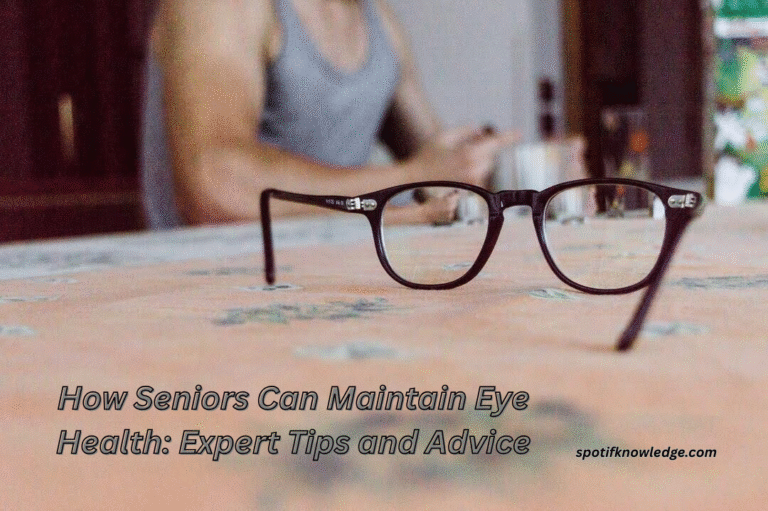As we age, maintaining our vision becomes increasingly important. Good vision is crucial for independence, safety, and overall quality of life. However, many seniors face various eye health issues that can impact their daily activities.
Here are some expert tips on how seniors can maintain eye health through effective eye care and healthy habits.
Regular Eye Exams Are Key
One of the most critical steps in eye care for seniors is scheduling regular eye exams. Adults aged 65 and older have comprehensive eye exams at least once a year. These examinations can help detect problems early on, such as cataracts, glaucoma, and macular degeneration.
Early detection often leads to better treatment outcomes. Seniors should talk to their eye doctors about any changes in their vision and follow through with suggested exams.
Nutrition Matters
What we eat plays a significant role in our eye health. Consuming a balanced diet rich in vitamins and minerals can help preserve vision. Foods high in antioxidants, such as leafy greens, carrots, and fish high in omega-3 fatty acids, are beneficial for maintaining eye health.
Nutrients like lutein and zeaxanthin can help reduce the risk of age-related eye diseases. Seniors should aim for a diet that includes vibrant fruits and vegetables to keep their eyes healthy.
Protecting Your Eyes from the Sun
Sun exposure can cause significant harm to our eyes, particularly in seniors. Ultraviolet (UV) rays from the sun can lead to conditions such as cataracts and macular degeneration. Wearing sunglasses that block 100% of UVA and UVB rays is vital when going outdoors.
Seniors should look for sunglasses with large lenses and a wraparound style for maximum protection. It’s also a good idea to wear a wide-brimmed hat for additional shade when outside.
Managing Screen Time
In today’s digital world, screen time is unavoidable. However, prolonged exposure to screens can lead to eye strain and discomfort, particularly for seniors.
To minimize eye strain, it’s important to practice the 20-20-20 rule. This rule encourages taking a break every 20 minutes to focus on something 20 feet away for 20 seconds.
Implementing this habit can significantly reduce discomfort and improve focus. Additionally, seniors should ensure their screens are at eye level to prevent straining their necks.
Understanding Senior Eye Discomfort
Many seniors experience discomfort that may be related to age-related changes in their eyes. Recognizing common symptoms such as dryness, fatigue, and blurred vision is essential. If these issues persist, seeking advice from an eye care professional can lead to appropriate treatments.
Optometrists can provide relief through various methods, including eye drops or specialized glasses. By understanding senior eye discomfort, seniors can take proactive steps toward maintaining their vision.
Incorporating Exercise
Regular physical activity is not beneficial just for the body but for the eyes as well. Exercise improves circulation and can help maintain a healthy weight. Being overweight increases the risk of developing diabetic eye disease and other eye conditions.
Activities such as walking, swimming, or light yoga can be excellent ways for seniors to stay active. Even gentle eye exercises, like rolling the eyes or focusing on near and far objects, can promote good eye health.
Getting the Proper Eye Care
Maintaining good eye health as a senior is a vital aspect of aging gracefully. Taking these steps will not only protect their eyes but also enhance their overall well-being. To maintain vision and eye health effectively, seniors should make these strategies a part of their everyday routine.
Want to hear more tips? Please look at our page for more informative and helpful blog posts.

